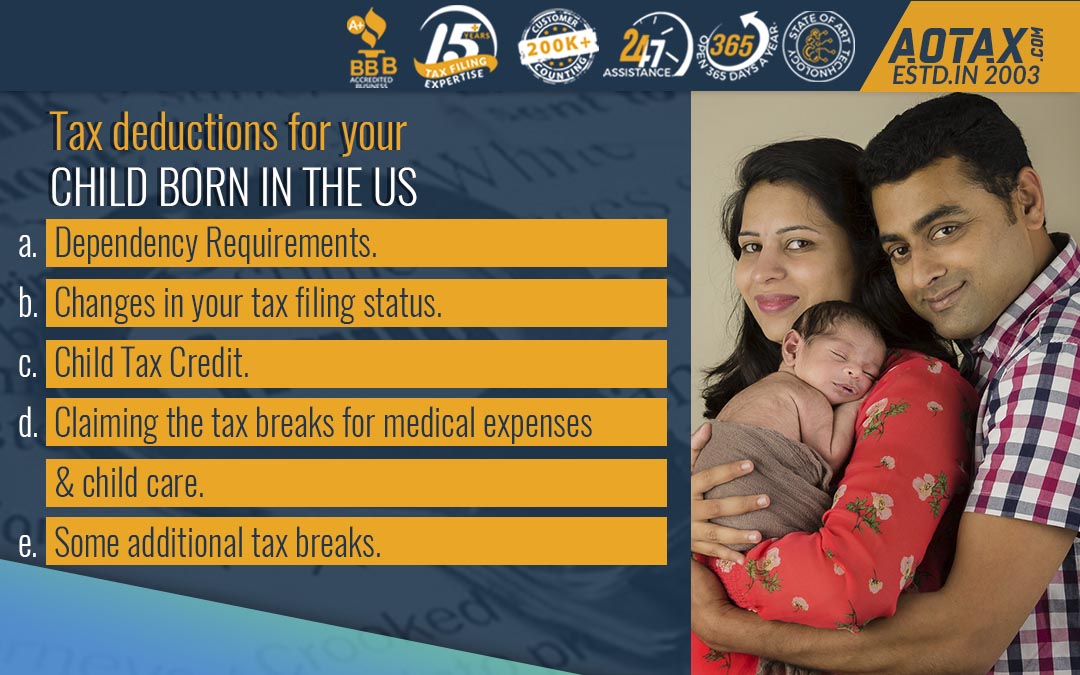Tax Deductions Available for Cancer patients



Giving Tuesday is said to be a day when individuals and businesses are helping the needy by making various charitable contributions. This would also increase the possibilities by which the tax bills of NRIs can be trimmed before the year 2020 comes to an end. The Giving Tuesday this year would be even more special as a lot of people are having genuine needs due to the adverse impact of the pandemic COVID-19. However, it is also necessary to understand which organization would qualify as a charitable organization.
NRIs in the US are aware of the concept of donating for charity and then writing off the donations made. However, there seems to be some confusion related to the exact concept behind this. Some Americans consider that contributions made to any organization can be deducted. Some others feel that the value of time that has been spent on volunteering can be deductible. But, the concept behind both these ideas is not true. Let us check out the real concept underlying the tax deductions related to charitable contributions and their functioning.
According to the IRS, charitable contributions occur for an NRI when he donates money which can include securities, goods/services, or business ownership to a particular organization. The market value of the contributions made would be deducted from your income tax returns.
The IRS has specified that for any particular donation or contribution to be qualified as charitable it must be made to a qualified organization. If contributions are made to any political parties, individuals, and any other candidates then those contributions are not tax-deductible. In general, the only deductible charitable donations are those contributions that are being made to a scientific, literary, educational or religious organization that has a 501(c) (3) status obtained from the IRS. NRIs can use the IRS Search Tool to have a clear understanding of which organization qualifies as a charitable organization.
In addition to money, other things which can be donated or contributed are:-
Many NRIs consider the time which they have spent in volunteering can make them eligible for tax deductions. However, this is not legal according to the guidelines of the IRS. The value of a particular person’s time is completely different from the value of another person’s time and it is difficult for the IRS to verify the worth of a particular person’s time. It is also not feasible to deduct any of your expenses related to volunteering for taxes. However, costs like the cost of gas, oil, uniform, air/bus transport, etc. which is related to your volunteering work can be deducted for tax.
Hence, charitable donations made to proper charitable organizations would be helpful from the tax deduction point of view. The NRIs must have a clear view of the rules associated with charitable contributions and tax deductions to avail the benefits easily.

The pandemic COVID-19 has created a lot of financial problems for people across the country. People from every profession are facing several economic issues due to the coronavirus and are continuously struggling to lower the impact of the pandemic on the profession/work-related front. However, if you are a small business owner then your business must have been impacted badly by the spread of the COVID-19. So, one of the ways by which you can be able to obtain some financial aid during these challenging times is through the US Small Business Administration (SBA) Debt Relief Program.

The SBA is a part of the $2 trillion packages offered by the US Government under the provisions of the CARES (Coronavirus Aid, Relief, and Economic Security) Act. It can be described as a debt-payment assistance program that would help in providing immediate relief to the various small businesses in the United States with the help of Small Business Administration Loans.
By the SBA Debt Relief Program, financial assistance can be provided to small business owners by making a payment of principal, interest, and any other fees which the borrowers owe for the current 7(a) loans, 504 loans, and other Microloans as well.

If a business is eligible to participate in the SBA Debt Relief Program there is no need for any application. Participation is automatic. The SBA has given instructions to the different lenders for not collecting any loan amount during the debt relief period. The SBA has said that it would make the loan payments for these borrowers. According to the provisions of the CARES Act, the SBA should start making the payments within a month of the date on which the first payment of the loan taken needs to be done.

Can you get a PPP loan even if you have received the SBA debt relief?
Yes, even if you have received the SBA Debt Relief you can fill an application for obtaining the PPP loan. You must keep in mind that the procedure for obtaining a PPP loan is different from that of the process for obtaining the SBA Debt Relief.
So, the SBA Debt Relief is an excellent initiative by the Government to alleviate the distress caused to the economic condition of the small businesses within the country due to the pandemic COVID-19. The borrowers might have several queries related to the SBA debt relief program and must contact their lenders for this purpose.

When the deadline for the tax return filing approaches, you should keep your details ready for review so that you do not miss any necessary detail. If you have a kid, then it is feasible that you can obtain some good tax benefits.
If you are going to claim your child as a dependent, then there are certain dependency requirements which your child must meet.
This is considered to be one of the best tax breaks for the parents. You can claim Child Tax Credit up to $1000 for each qualifying child.
Some criteria must be met for your child to be the qualifying child.
There are some other tax breaks which parents can enjoy such as:-
So, these factors would help you to understand the different facets related to the tax deductions associated with your child born in the US.

More and more Americans are now looking for purchase of vacation homes, rental income properties, and comfortable places to settle down after retirement. US Tax laws governing the ownership of property are quite complex and have different tax implication for both residents and non-residents.
In the US, a landlord can count the rent received as income whereas the renters may not deduct the rent which they are paying. A homeowner can be considered as both the landlord and the renter. However, the tax code of the country would treat the homeowners in the same way as the renters by ignoring their simultaneous role as their landlords.
Those homeowners who are itemizing their deductions may reduce their taxable income by deduction of the interest that has been paid on the mortgage of their home. Those taxpayers who do not have their own homes will not have the ability to make any deductions for the interest paid on the debt incurred in the purchase of goods and services.
However, there have been certain changes introduced by the TCJA (Tax Cuts and Jobs Act). Before the changes introduced by the TCJA, the deduction was limited to the interest paid up to $1 million of debt which has been incurred either to purchase or substantially rehabilitate a house. Homeowners can also make a deduction on the interest that is paid up to $100,000 of home equity debt regardless of how the borrowed funds have been used. The TCJA has also limited the deduction to interest on up to$750,000 of the mortgage debt which has been incurred after 14th December 2017 to either buy or improve a first or second home.
Homeowners who can itemize their deductions may also have to reduce their taxable income by deduction of property taxes which they pay on their homes. This deduction can be said to be a transfer of federal funds to the jurisdiction which imposes a property tax and allowing them to raise the property tax revenue a lower cost to its constituents.
Usually, taxpayers who sell assets must pay capital gains tax on any profit which is made out of the sale. But, homeowners might exclude from the taxable income up to $2, 50,000 of capital gains on the sale of their homes. This is feasible when certain criteria i.e. the homeowners must have maintained their home as a principal residence for two years out of the five preceding years and may not have claimed the capital gain exclusion for the sale of the other home during the previous two years.
These benefits are more useful for those taxpayers who are in the higher-income tax brackets rather than to those who are in the lower-income tax bracket. The difference in the tax impact results due to three main factors: compared with lower-income homeowners, those with higher incomes face higher marginal tax rates, typically pay more mortgage interest and property tax, and are more likely to itemize deductions on their tax returns.
So, if you are a house owner or are planning to buy a house in the US these tax implications would be of great help to you in understanding the details related to the tax system.

Losses incurred in the stock market can be termed as Capital Losses. Capital Losses are said to be incurred when a capital asset such as an investment or a real estate decreases in its value. When this capital asset is sold at a price which is much lower than the actual purchase price of the asset, then the capital loss is realized. There are always fluctuations in the stock market and your investments might give you huge profits or even bring your losses. Losses are always demotivating; however, you can note that capital losses can be used to reduce the income tax bill which you owe to pay to the IRS.
Like it is mandatory to report Capital gains as income, similarly, Capital losses can be used as deductions on your tax returns.

Capital losses are mainly of three categories which are listed below.
According to the US Tax laws, your realized capital losses can have an impact on your income tax bill. Moreover, realized capital losses can be used for lowering the income tax bill only if the asset you have sold was owned for investment. Also, you need to think wisely and create realized capital loss; for instance, if you sell a coin collection for a price lower than its cost price intending to utilize it as a deduction on income tax bill it would not be acceptable.
Hence, you must attempt to take your tax-deductible capital losses in a very tax-efficient manner to have maximum benefit. Choosing a short-term capital loss for tax deduction would be more advantageous than that of a long-term capital loss. In general, you should opt for taking any capital loss in the year in which you are tax-liable for short-term gains or in which you have obtained zero capital gains as this would help in saving on your ordinary income tax rate.
https://www.investopedia.com/articles/investing/062713/capital-losses-and-tax.asp
Recent Comments